Every year on 21 December, writers, publishers, readers and literary enthusiasts celebrate National Short Story Day. So join us in celebrating this day by exploring some of the most famous short stories, understanding the elements that make them captivating and discovering how you can actively participate in the festivities.
This blog post discusses the rich tapestry of short stories — exploring their history, elements and incredible impact on literature. From Edgar Allan Poe’s psychological thrillers to Shirley Jackson’s chilling tales, short stories have left an indelible mark on literary history.
- Why is National Short Story Day celebrated on 21 December?
- Origins of National Short Story Day
- What is a short story?
- How to celebrate National Short Story Day?
Why is National Short Story Day celebrated on 21 December?
National Short Story Day takes place on 21 December annually. This date is not a coincidence because 21 December is the shortest day of the year, also called the winter solstice. Therefore, we celebrate the short story form on the shortest day of the year.
Origins of National Short Story Day
The origins of the Short Story Day are not clear. Some believe it started in the UK to promote reading and writing short stories. With time, it became celebrated not only in the UK but also in other countries, including the US, Australia and New Zealand. In the UK, the day is organised by the National Association of Writers in Education with support from the Arts Council England.
Next, another origin story credits Nancy Christie, a short story writer and author. Christie created the observance in 2013 to honour the short story writers and their readers.
Finally, some associate the National Short Story Day with UK writer and editor Callum Kerr. However, this is a misconception because Callum Kerr founded the National Flash Fiction Day. Since 2012, this occasion is celebrated on 25 June every year.
What is a short story?
Short stories are a popular literary form, typically between 1,000 and 4,000 words. However, it is worth noting that some can have a word count three times larger and still be considered short stories. This is because the genre does not have hard and fast rules on word counts.
On the other hand, stories shorter than 1,000 words are commonly referred to as flash fiction. This literary form is a type of creative writing that can be even as brief as five words.
Moreover, various other types of short stories are available for readers to enjoy. These include an anecdote, drabble, feghoot, fable, sketch and vignette.
Elements of a short story
- The plot is the sequence of events that make up the narrative. It typically consists of an introduction, rising action, climax, falling action and resolution. In a nutshell, it is the storyline that keeps the reader engaged from beginning to end.
- Characters are the people or entities who drive the story. They can be protagonists, antagonists or supporting characters. Importantly, their traits, actions and dialogue contribute to the development of the narrative.
- The setting establishes the time and place in which the story unfolds. For instance, it includes details about the environment, atmosphere and circumstances. A vivid setting helps, therefore, create a realistic backdrop for the events.
- The theme is the central idea or message that the story conveys. In other words, it is the underlying concept or insight that the author wants readers to explore or understand. Themes can be universal or specific to the story.
- Point of view refers to the perspective from which the story is told. It can be first person (narrator as a character), third person limited (narrator outside the story with insight into one character’s thoughts) or third person omniscient (narrator knows thoughts of all characters).
History of the short story
The origins of short stories trace back to ancient oral traditions when storytellers shared brief narratives and anecdotes. Later, during the medieval period, short stories started appearing in written form, often as fables, parables and religious tales. The 15th century saw the advent of the printing press, which made it easier to distribute short stories to a broader audience. The popularity of short prose narratives continued to grow during the Renaissance, with notable contributions from authors like Giovanni Boccaccio and Geoffrey Chaucer.
The rise of newspapers and magazines in the 17th century provided a platform for short fiction to reach an even broader audience. This is when short stories became especially popular. For instance, Richard Cumberland’s The Poisoner of Montremos and Washington Irving’s Rip van Winkle and The Legend of Sleepy Hollow became instant classics around that time. Consequently, the 19th century saw the emergence of the short story as a distinct literary form, with writers like Edgar Allan Poe and Nathaniel Hawthorne making significant contributions. For example, American and Russian authors embraced this format in the late 19th and early 20th centuries, with Anton Chekhov becoming known for his mastery of the form. In the 20th century, the short story continued to thrive in various literary movements, with authors such as Ernest Hemingway, James Joyce and F. Scott Fitzgerald experimenting with narrative techniques.
Today, the short story remains a vibrant and diverse literary form that has found a place in traditional print media and online publications and continues to be a powerful vehicle for literary expression.
Most famous short stories
Some of the most famous short stories in literary history have left an indelible mark on readers, showcasing the depth and impact achievable within a compact narrative space. So let us have a look at some examples of famous short stories:
- Edgar Allan Poe’s The Tell-Tale Heart is a psychological thriller that delves into the disturbed mind of its unnamed narrator, revealing the consequences of guilt and obsession. Poe’s mastery of suspense has cemented this tale as a classic.
- The Lottery by Shirley Jackson is a chilling exploration of tradition and conformity. In a seemingly ordinary town, the annual ritual of a lottery takes a horrifying turn, challenging societal norms and human nature. Therefore, Jackson’s deft handling of suspense and social commentary has made The Lottery a thought-provoking and enduring piece.
- Anton Chekhov’s The Lady with the Dog explores complex human emotions. In this tale of love and infidelity, Chekhov captures the intricacies of relationships with subtlety and nuance. Furthermore, the story’s exploration of the human condition has solidified its status as a masterpiece.
- Ernest Hemingway’s The Old Man and the Sea is a triumph of storytelling. Through the tale of an ageing fisherman’s epic struggle with a giant marlin, Hemingway explores themes of resilience and the indomitable human spirit. Importantly, the narrative’s simplicity and profound symbolism earned Hemingway the Nobel Prize in Literature.
- Raymond Carver’s Cathedral is celebrated for its exploration of personal transformation. In the story, a blind man’s visit challenges the narrator’s perceptions, creating a cathartic and transformative experience. Carver’s minimalist style and exploration of human connection contribute to the story’s enduring impact.
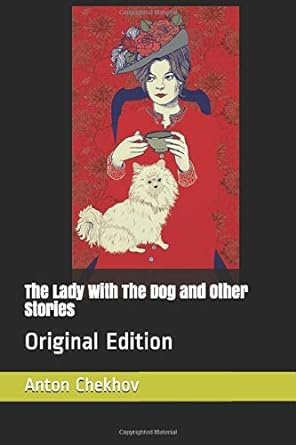
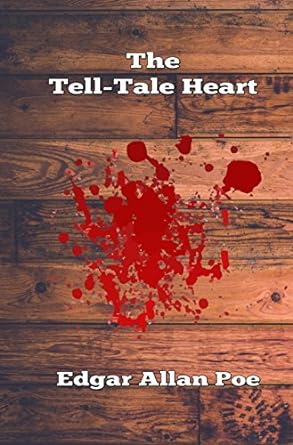

How to celebrate National Short Story Day?
Read a short story
Grab a book, read it online or read a bedtime short story to your child. There are many excellent anthologies and collections of short stories for adults that span a variety of genres and styles. Here are some recommendations:
- A Pulitzer Prize-winning collection, Interpreter of Maladies by Jhumpa Lahiri, explores the lives of Indian and Indian-American characters, capturing the nuances of their experiences.
- A linked short stories collection, The Things They Carried, by Tim O’Brien revolves around the experiences of a platoon of American soldiers during the Vietnam War.
- Dubliners by James Joyce vividly portrays Dublin in the early twentieth century, with each story providing a snapshot of different characters and situations.
- Her Body and Other Parties by Carmen Maria Machado blends elements of horror, fantasy and surrealism to explore women’s experiences.
- Bloodchild and Other Stories by Octavia Butles showcase masterful sci-fi storytelling and exploring themes of power, identity and relationships.
- Nine Stories is a classic collection of J. D. Salinger’s most famous stories, such as A Perfect Day for Bananafish and For Esme with Love and Squalor.
- The Best American Short Stories anthology, edited by different guest editors each year, collects some of the best short stories published in literary magazines and journals.
- Black Mirror and Philosophy, based on the popular TV series Black Mirror, features short stories exploring the dark and thought-provoking aspects of technology and society.
- The Complete Stories by Flannery O’Connor includes all of her short stories, showcasing her distinctive Southern Gothic style and exploration of moral and religious themes.
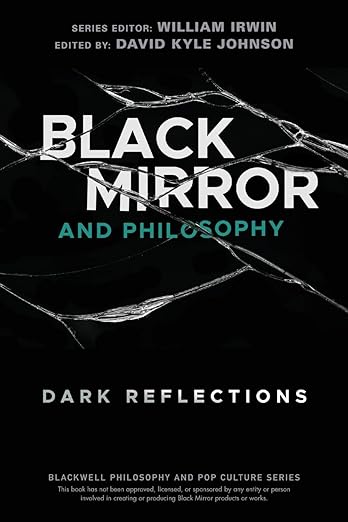
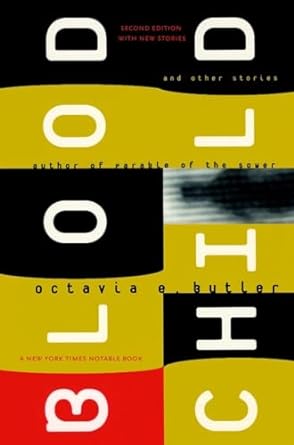
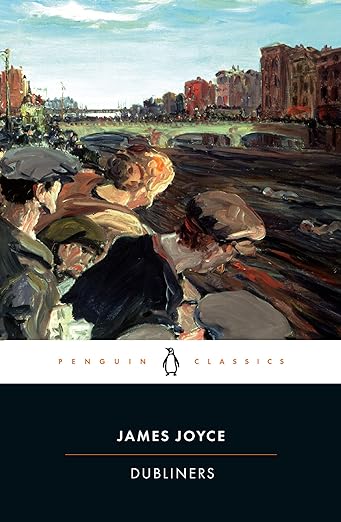
Post on social media
Share your favourite short stories with friends or on social media. For instance, use hashtags such as #NationalShortStoryDay, #ShortStoryDay or #CelebrateShortFictionDay.
Write your own story
Take the opportunity to write a short story of your own. It does not have to be long, so focus on a concise, engaging narrative. To craft a compelling short story, begin with a captivating hook that intrigues readers. Develop well-defined characters with distinct motivations and conflicts to drive the narrative. Next, establish a vivid setting to immerse readers in the story’s world. Moreover, focus on a central theme or message to give the narrative depth. Finally, utilise concise and impactful language, carefully selecting each word for maximum effect.
Writing a short story is a fulfilling experience, but it does not end with the final sentence. Editing is an integral part of the writing process, and it can make a significant difference in the quality of the final product. Different editing services can help a writer finalise or prepare their short story for publication.
Proofreading
Proofreading involves checking for errors in spelling, grammar and punctuation. A proofreader ensures that the text is free of typos and other minor errors that can detract from the reader’s experience. This is a crucial step in the editing process, as it ensures that the text is polished and professional.
Copyediting
Copyediting is a more thorough form of editing that focuses on the language, style and tone of the text. Among others, a copyeditor ensures that the text flows smoothly and that the language is appropriate for the target audience. In addition, they may suggest changes to sentence structure and word choice to improve the clarity and readability of the text.
Translation editing
Translation editing is a specialised form of editing that focuses on translating a text from one language to another. A translator editor ensures that the translation is accurate, faithful to the original text and appropriate for the target audience. Moreover, they may suggest changes to the translation to improve its clarity and readability.
Line editing
Line editing is a more intensive form of editing that involves working on the text at the sentence level. A line editor ensures that each sentence is well-constructed, clear and concise. Additionally, they may suggest changes to sentence structure or word choice to improve the flow and readability of the text.
Developmental editing
Finally, developmental editing is the most comprehensive form of editing, focusing on the overall structure, plot and character development of the story. A developmental editor works closely with the writer to identify areas for improvement and suggest changes to the story’s structure, characters and plot.
Explore podcasts
Many platforms curate and present short fiction in audio format. Here are some suggestions of podcasts featuring short stories:
- Selected Shorts is a long-running radio show and podcast that features actors performing short stories in front of a live audience. The stories come from a variety of authors and genres.
- The New Yorker: Fiction, produced by The New Yorker, features authors reading and discussing short stories from the magazine’s archives. Additionally, it provides insights into the creative process and the author’s intent.
- LeVar Burton Reads showcases the actor’s love for storytelling. Each episode features LeVar Burton narrating a carefully selected short story, often in the science fiction or fantasy genre.
- Escape Pod is a science fiction podcast that presents short stories in the sci-fi genre. They focus on speculative fiction and often feature thought-provoking narratives.
- The Moth is a storytelling podcast where people share true, personal stories in front of a live audience. While not exclusively fiction, it often includes compelling narratives that feel like short stories.
- Lightspeed Magazine produces a print magazine and a podcast featuring science fiction and fantasy stories. They present a mix of original fiction and reprints from established authors.
Write reviews
Share your thoughts on short story collections by writing reviews on Goodreads or Amazon. This way, you can help others discover great short stories. If you are a veracious reader and a passionate book reviewer, consider reviewing an advance reader copy.
To write a compelling book review, consider the following steps:
- Take the time to read the short stories carefully. Pay attention to the writing style, character development, themes, and the overall impact of each story.
- Reflect on how the stories in the collection work together. Do they form a cohesive narrative or explore a common theme? Consider the collection’s overall impact on the reader.
- Identify the strengths of the short story collection, such as well-crafted characters, engaging plots, or unique narrative styles. Similarly, address any weaknesses you may have observed.
- Share your emotional and intellectual reactions to the stories. How did the collection make you feel? Did it provoke thoughts or challenge your perspective? Personal responses can make reviews more relatable.
- Be mindful of potential readers who haven’t yet experienced the stories. Avoid revealing major plot twists or details that might spoil the reading experience.
- Write clearly and concisely. Use language that accurately conveys your thoughts and feelings. Your review should be informative and accessible to a broad audience.
Attend a short story writing workshop or class
If you are a writer or a wanna-be writer, celebrate National Short Story Day by attending a short story writing workshop, course or class. Here are some ideas for both paid and free options:
Paid short story writing classes, courses and workshops
- Writing character-driven short stories by Skillshare is a 45-minute class. Access to Skillshare costs $29 per month or $168 per year, with a 30-day free trial. The instructor of this class, Yiyun Li, a professor at UC Davis, has been named one of the 20 Under 40 writers by The New Yorker.
- Short story writing course by Citylit is an intermediate course. The course consists of 11 weekly online or in-person sessions, costing £219.
- Short story fundamentals course by Writer’s Digest University runs for a month and costs $249.99. John DeChancie, the author of two dozen books, is one of the course instructors. The second instructor is Ran Walker, an award-winning author of 16 books who has written novellas, short stories, flash fiction, microfiction and poetry, and his work has appeared in various anthologies and journals.
- Udemy offers several short story writing courses and classes. The platform often provides courses at a one-time purchase fee. Moreover, courses are frequently discounted, and there is an option to preview a course for free.
- The art of short story by MasterClass consists of 14 video lessons (in total, 3.5 hours). Access to MasterClass costs $180 for its annual subscription ($15 per month). The award-winning author Joyce Carol Oates is the instructor of this masterclass. Oates has published 58 novels and thousands of short stories, essays and articles. Additionally, she is also a Princeton University creative writing professor.
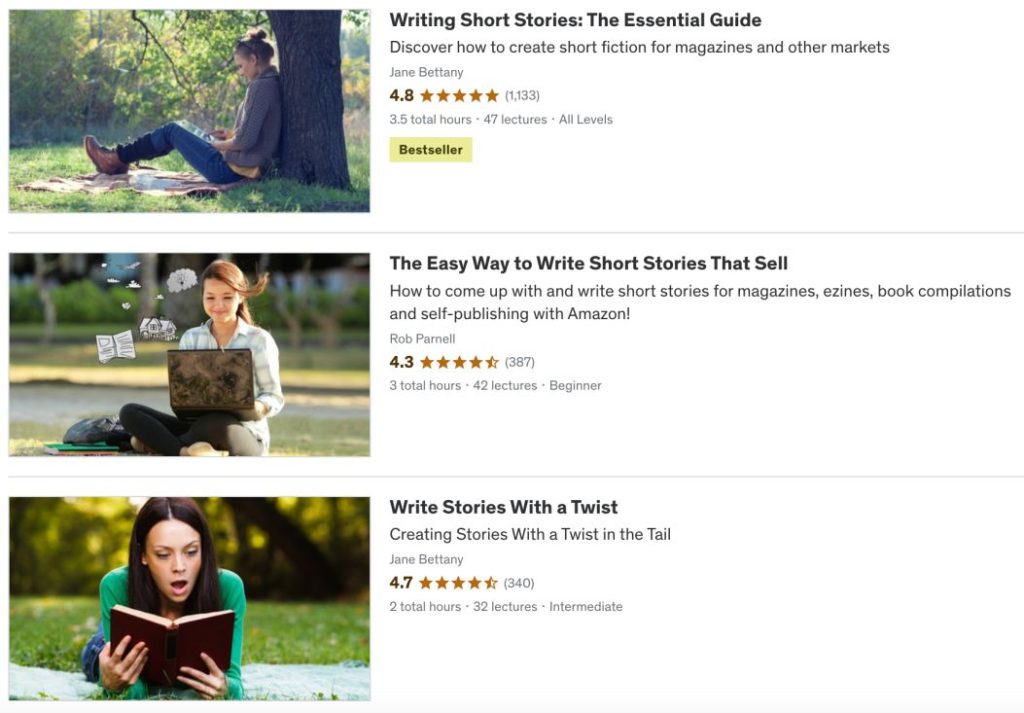
Free short story writing classes, courses and workshops
- Free short story writing course by Christopher Fielden is comprised of five videos. Fielden is an award-winning and Amazon bestselling author. His work has been featured in books published by independent press, established magazines and renowned competition anthologies. He was an Award-Winning Finalist in the Fiction: Short Story category of the International Book Awards in 2019. Furthermore, he is the author of How to Write a Short Story, Get Published and Make Money.
- How to craft a killer short story by Reedsy is a free writing course. The instructor of this course, Laura Mae Isaacman, is a full-time editor who runs a book editing company. Joyce Carol Oates, T. C. Boyle and Noam Chomsky are among writers she has worked with.
- How to show and not tell in short stories by Writers Write is a free course consisting of nine lessons. Mia Botha is the instructor of this course. Botha is a writer and a writing teacher, teaching, guiding, and sharing her knowledge for almost 10 years.
Final thoughts
Short stories have been around for centuries, and their popularity continues to grow. Nowadays, we celebrate National Short Story Day on 21 December every year to promote the reading and writing of short stories.
To celebrate National Short Story Day, writers and readers can read a short story, write their own, post on social media, write reviews, explore podcasts or attend short story writing workshops and classes.
If you are a writer and your short story needs a second pair of eyes, contact me for a free sample edit (and remember to use my early bird discount). I am an experienced editor, working with non-fiction, academic and business texts.


